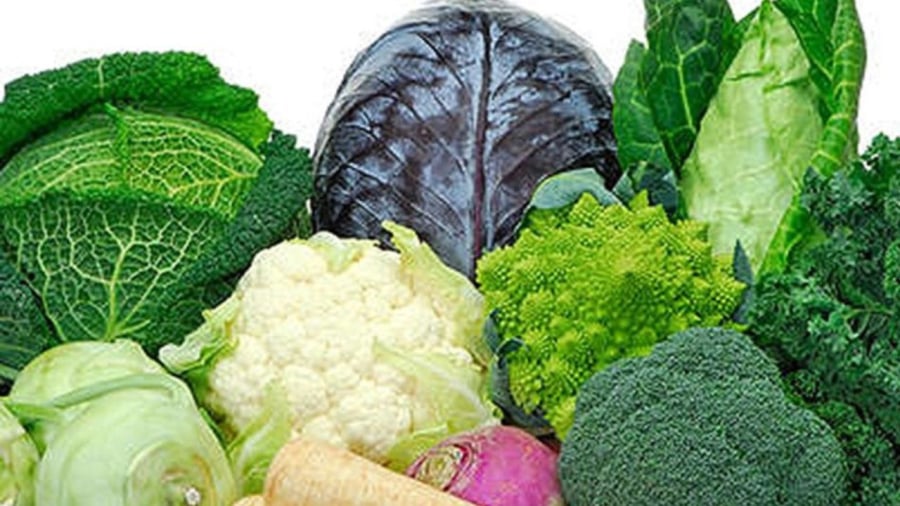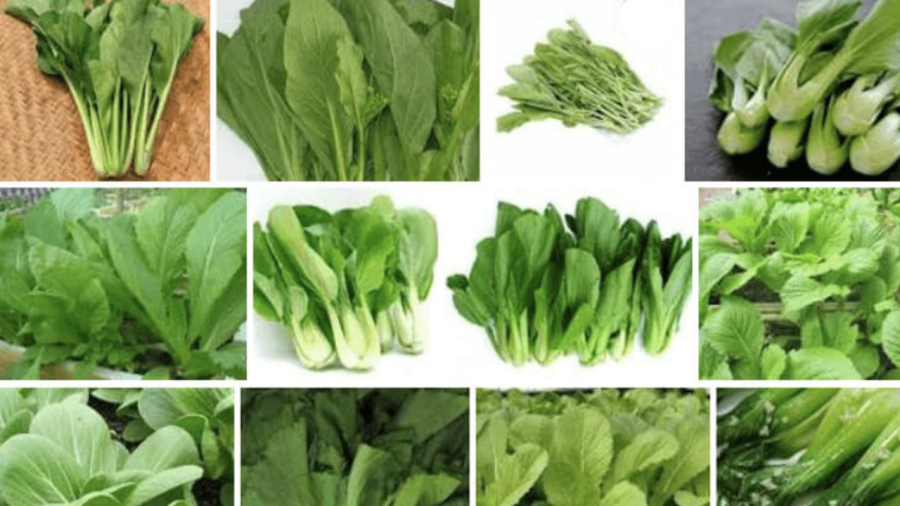Cruciferous vegetables are considered by nutrition experts to be a highly nutritious group of vegetables with great health benefits, particularly in their ability to support cancer prevention. Cruciferous vegetables include cabbage, cauliflower, broccoli, kale, Brussels sprouts, and turnips…
Why do cruciferous vegetables help fight cancer?
Cruciferous vegetables are rich in fiber and contain numerous biologically active compounds that have been proven to help prevent cancer. Among them, vitamin C and carotenoids have been shown to possess strong antioxidant properties, thus neutralizing free radicals and protecting the body from cancer. The formation of cancer cells in our body is caused by the movement and development of free radicals. When we supplement our diet with antioxidants, the free radicals are eliminated, thus preventing the formation of tumors. Moreover, cruciferous vegetables also contain glucosinolates. Once inside the body, glucosinolates are broken down into isothiocyanates and indoles, which have anti-inflammatory effects. Chronic inflammation is also a factor leading to cancer.

A study conducted by the University of California (USA) revealed that a compound called isothiocyanate, which has anti-cancer activity, can be found in cruciferous vegetables such as cabbage, cauliflower, and kale. The researchers found that isothiocyanate inhibits the development of cancer cells and effectively eliminates them.
For this reason, experts advise people to actively consume cruciferous vegetables and alternate between different types of cruciferous vegetables.
Cruciferous vegetables improve cardiovascular function
The high fiber content in cruciferous vegetables helps reduce cholesterol levels in the blood and lower high blood pressure. These are factors that contribute to heart disease. Furthermore, cruciferous vegetables are rich in potassium, magnesium, calcium, and vitamins, which help regulate blood pressure and blood sugar levels, thus protecting the blood vessels.

Cruciferous vegetables aid in weight loss
Cruciferous vegetables are rich in fiber, minerals, and vitamins but low in calories. Therefore, eating cruciferous vegetables such as cabbage, beetroot, turnips, and Brussels sprouts helps reduce hunger and increases the feeling of fullness, helping to cleanse internal fat and promote weight loss.
Cruciferous vegetables promote gut health
Cruciferous vegetables are rich in fiber, which helps protect the intestines, prevent constipation, and combat gastrointestinal disorders. When fiber reaches the intestines, it is broken down by gut bacteria and fermented, producing short-chain fatty acids, which lower the pH level in the intestines. A low pH level is unfavorable for harmful bacteria but stimulates the growth of beneficial bacteria, thereby enhancing gut health. When gut health improves, digestion is optimized, and the immune system is strengthened. The intestines are responsible for 70% of the body’s immune system. Healthy intestines contribute to the prevention of obesity, heart disease, type 2 diabetes, cancer, and liver disease…
Therefore, you can consume cruciferous vegetables on a daily basis, but it is advisable to avoid consuming the same type for consecutive days. Instead, you should vary your consumption, eating cabbage one day, broccoli the next day, and turnips on another day…





































